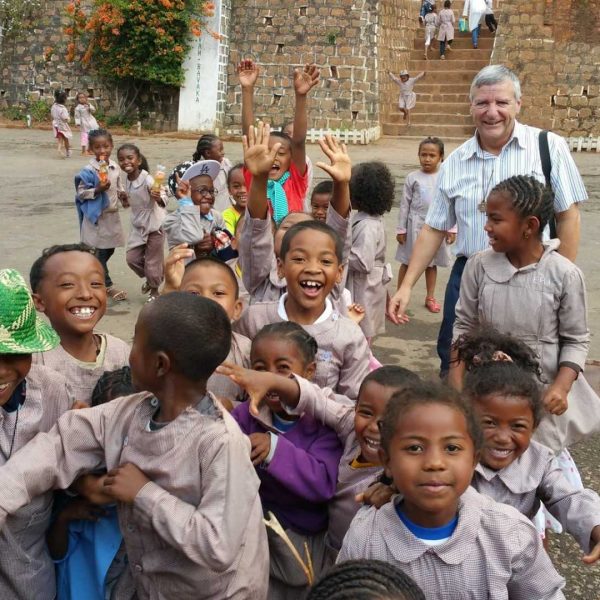Dignity, integration and protection of migrant children
Away from home. This is what many Venezuelan families have been forced to do by the complex social, economic and political situation the country is facing, forming part of the largest human displacement in the region’s recent history. Colombia, which shares a 2,219-kilometre border with Venezuela, has become the main destination for migration, and the area of Maicao, where the ‘Heart Without Borders: for the Right to Play’ project with the support of Misean Cara is taking place, is among the largest areas of settlement for migrants. Sixty per cent of them are homeless or live in inadequate settlements: garages or flats, small shacks made of cardboard, cans or plastic without access to drinking water or electricity, trying to earn a living through informal jobs.
This situation of poverty and precariousness is amply reflected in the situation of children, with a multifaceted violation of their rights to grow up in a safe and healthy environment, to education, health and healthy food, to play and to be children.
Most of them do not attend school due to the lack of places, their irregular status, the lack of financial resources to cover school expenses and learning difficulties due to the trauma of forced displacement and the lack of study habits after a long period without a school routine. 70% of the children are illiterate, with dyslexia or attention deficit disorder (ADD). They have difficulty socialising and expressing emotions, and display violent attitudes and language. The impact of lack of schooling also affects the youth population.
The percentage of young migrants between the ages of 15 and 24 who are neither studying nor working is 42%. As Maicao is a border area, the consolidation of illegal trafficking and armed groups recruiting children and adolescents for their activities is facilitated. Human trafficking networks for the purpose of sexual exploitation take advantage of the vulnerable conditions of the migrant population, involving Venezuelan migrant girls, both indigenous and non-indigenous, aged between 12 and 17 years as victims, bringing them to other territories. For this reason, the project seeks to provide a healthy, safe and easily accessible space (thanks to its location in the city centre) that meets the basic needs of children and adolescents while promoting their development and inclusion in the Colombian school system.
Through educational, artistic and sports activities, children have the opportunity to exercise their right to play, establish healthy relationships with their peers and be encouraged to return to school. Workshops are also promoted with migrant families to accompany their children on this path and protect them from violence and abuse.
To date, almost 600 children have benefited from the programme, Venezuelan migrants, repatriated Colombians and members of the indigenous Wayuu group who historically settled on the Colombian-Venezuelan border and had to leave their communities in Venezuela. Thanks to the implementation of the project, they regain confidence, self-esteem and the ability to integrate positively into their new reality.



